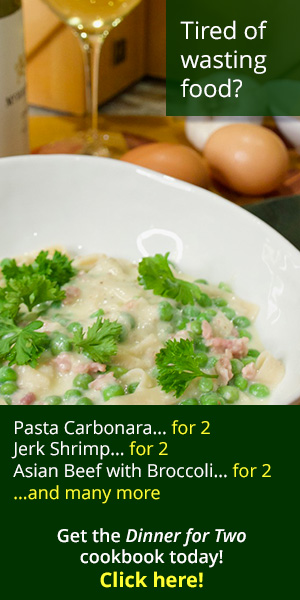The Mediterranean Diet
No. 2 - Legumes
As with the wide variety of cabbages you can find in the market, there are lots of different legumes (some of which you probably didn't think were related to each other).
In botany the term legume has two meanings. Legume is a species of plant but the term also refers to any fruit that develops seeds lined up in a pod (most often the pod splits open down a seam on one side like “peas in a pod”). Legumes are also known as Pulses.
Legumes are great sources of protein and fiber. I have written on this in many columns and sidebars on this website. Making beans your choice for a starch with dinner as with Black Bean Cakes or Sea Bass with White Beans. Minestrone or Split Pea Soup with a salad makes a great dinner. Fill your pantry with canned or dried beans like kidneys, garbanzos and black beans.
Beans
Azuki Beans
Black Beans (Turtle Beans, Mexican Black Beans, Spanish Black Beans)
Cranberry Bean
Fava Bean (Broad Bean, Butter Bean, Windsor Bean, English Bean)
Flageolet
Garbanzo Beans (Chick Peas)
Great Northern Bean
Lima Beans
Navy Beans (Yankee Bean, Boston Bean, Boston Navy Bean)
Pinto Beans
Red Bean
Red Kidney Beans (Mexican Beans, Red Beans)
Soy Bean (Edamame, Soya Bean)
White Kidney Bean (Cannellini Bean, Fazolia Bean)
Lentils
Brown Lentils
French Green Lentils
Pink Lentils (Red Lentils, Masoor Dal)
Yellow Lentils (Moong Dal)
Red Lentils
Black Lentils
Peas
English Peas
Black Eyed Peas
Peanuts
Runners
Valencia
Spanish
VirginiaSnap Beans
Chinese Long Beans
French Green Beans (Haricot Verts)
Green Bean (String Bean)
Runner Bean (Italian Flat Bean)
Wax BeansEdible Pods
Okra
Snow Peas (Chinese Pea, Chinese Snow Pea)
Sugar Snap Peas (Snap Peas)Recipes containing legumes:
Autumn Pork Chops
Black Bean Cakes
Black Bean Hummus
Black Bean Soup
Black Eyed Pea Salad
Cannellini Bean Soup
Chick Pea Salad
One Skillet Chicken with Black Beans
Green Beans with Walnut Vinaigrette
Green Beans with Red Onion
Hummus
Lentil and Black Bean Salad
Minestrone
Minted Peas
Red Beans and Rice
Sea Bass with White Beans and Tomato Vinaigrette
Split Pea Soup
Three Bean Salad
White Chili
Wild Rice and Black Beans
Mediterranean Diet Basics
The basics of the Mediterranean diet can be broken into 9 important areas of change for your health:
1. Vegetables
No. 1 - Vegetables This one’s pretty easy. It’s pretty much impossible to eat too many vegetables. Keep in mind…
2. Legumes
No. 2 - Legumes As with the wide variety of cabbages you can find in the market, there are lots…
3. Fruits & Nuts
No. 3 - Fruits and Nuts Fruit is the perfect snack. Sweet and satisfying, it’s important to keep your fridge…
4. Cereal Grains
No. 4 - Cereals and Grains Whole grains are really good for you. If you are used to "white" starches…
5. Fish
No. 5 - Fish More fish, less meat. Simple. A lot of people say that they don’t like fish. However,…
6. Oils
No. 6 - Oils and Fats In most studies on the Mediterranean Diet this is generally classified as olive oil.…
7. Dairy Products
No. 7 - Dairy The traditional Mediterranean diet doesn’t have dairy products as a major focus. When dairy is part…
8. Meats
No. 8 - Meats Less meat and lean meats. The median consumption was about 4 ounces of meat per day.…
9. Alcohol
No. 9 - Alcohol There is good evidence that moderate use of alcohol is good for you and this research…




